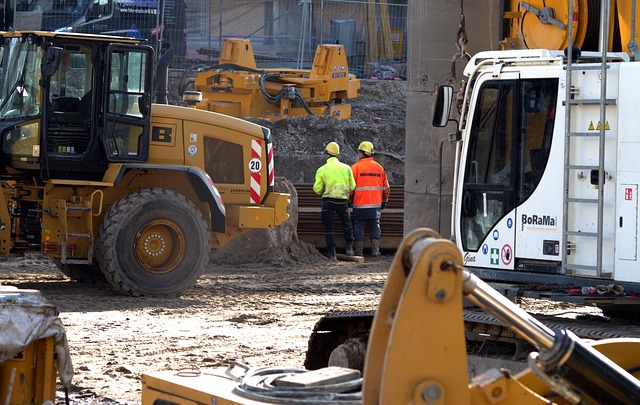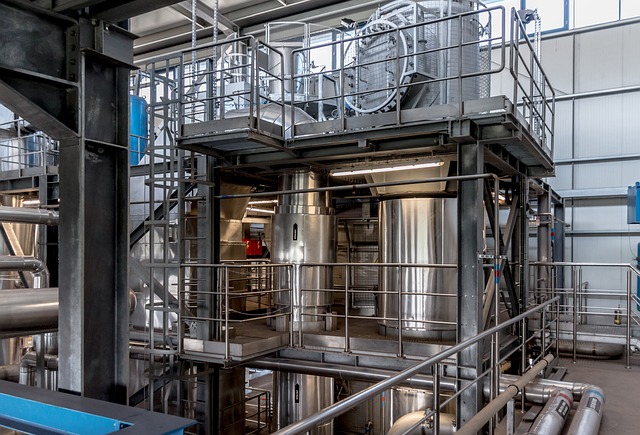Boiler selection between gas, oil, or electric involves considering efficiency, costs, and maintenance. Consulting a qualified boiler engineer is crucial for expert advice on energy performance, installation, repairs, and long-term savings. They ensure safe, optimal systems for comfortable heating and hot water supply.
In the pursuit of efficient heating solutions, understanding the nuances of gas, oil, and electric boilers is essential. This comprehensive guide delves into the pros and cons of each system, empowering homeowners with knowledge. From the cost-effectiveness of gas to the environmental benefits of electricity, we explore factors that influence choice. A qualified boiler engineer highlights key considerations, ensuring informed decisions that cater to individual needs and budgets.
- Gas Boilers: Pros and Cons for Homes
- Oil Heating: Advantages and Disadvantages
- Electric Boilers: Efficiency and Cost Analysis
- Choosing: Consideration by a Qualified Boiler Engineer
Gas Boilers: Pros and Cons for Homes

Gas boilers have been a popular choice for residential heating systems due to their efficiency and ease of use. Pros include quick heating times, as gas is readily available, making it easily accessible for consistent warmth throughout homes. This type of boiler also offers better temperature control, allowing homeowners to set desired warmth levels precisely. Regular maintenance by a qualified boiler engineer can extend the life of these appliances.
However, cons such as higher initial costs and potential safety hazards associated with gas leaks need consideration. Unlike electric boilers, gas systems require professional installation and regular check-ups from boilermakers to ensure optimal performance and safety standards. Moreover, concerns about environmental impact due to greenhouse gas emissions linked to natural gas usage should be addressed by homeowners considering this option.
Oil Heating: Advantages and Disadvantages

Oil heating systems have been a traditional choice for many homes and businesses, offering both advantages and disadvantages compared to gas or electric boilers. One key benefit is their efficiency, especially in colder climates, as oil boilers can effectively heat larger spaces. This makes them ideal for older properties with extensive floor areas or industrial settings requiring robust heating solutions. Furthermore, oil-fired boilers often have lower running costs than their gas counterparts, as the price of oil may be more stable, and they don’t rely on a constant gas supply.
However, maintaining an oil heating system can be more complex. Unlike electric boilers, which are generally plug-and-play, oil boilers require regular servicing by a qualified boiler engineer to ensure optimal performance and safety. Preventative maintenance plans are essential to avoid unexpected breakdowns and costly repairs. An added consideration is the storage and delivery of oil, which can be a logistical challenge, especially in remote areas, and may also pose environmental concerns compared to cleaner energy alternatives. Industrial boiler troubleshooting, for instance, often involves addressing complex issues unique to large-scale heating systems.
Electric Boilers: Efficiency and Cost Analysis

Electric boilers are known for their high energy efficiency compared to gas or oil-fired counterparts. This is primarily due to the direct conversion of electrical energy into heat, eliminating the need for combustion and associated losses. A qualified boiler engineer can help optimize your system, ensuring you get the best performance from your electric boiler. In terms of cost, while initial installation costs might be higher than those of gas or oil boilers, electric models offer long-term savings. Electricity is generally cheaper than gas or oil, especially when sourced from renewable methods.
When considering the pros and cons, regular maintenance is crucial for electric boilers, similar to gas boiler replacement and commercial boiler maintenance. However, their simplicity means that repairs, such as boiler repair, are often less complex and more cost-effective compared to their more intricate counterparts. This makes electric boilers an attractive option for those looking for a reliable, efficient, and potentially lower-maintenance heating system.
Choosing: Consideration by a Qualified Boiler Engineer

When it comes to choosing between gas, oil, or electric boilers, consulting a qualified boiler engineer is paramount. Their expertise can guide homeowners in weighing the intricate pros and cons of each type. A professional will assess factors like energy efficiency, initial cost, runtime, and maintenance requirements – all crucial considerations for long-term comfort and savings.
Engaging a qualified boiler engineer also ensures proper installation, which is critical for safety and optimal performance. They can perform tasks such as heat exchanger repair, boiler leak detection, and system tuning to maximize efficiency. Additionally, their advice on regular maintenance routines helps extend the lifespan of the boiler while ensuring consistent heating and hot water supply.
When comparing gas, oil, and electric boilers, each option presents unique advantages and drawbacks. Gas boilers offer convenience and efficiency but may face higher fuel costs and emissions concerns. Oil heating provides robust performance in colder climates but is less eco-friendly due to fossil fuel reliance. Electric boilers, with their energy efficiency and lower carbon footprint, could be a sustainable choice, although initial installation costs might be higher. A qualified boiler engineer can guide homeowners in making an informed decision based on specific needs and budget considerations. Ultimately, the best option depends on individual circumstances and long-term goals for energy consumption.
